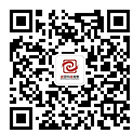Pilot Project, Washable Self-adhesive Labels or Conventional Self-adhesive Labels, How much Impact do They have on Recycling?
Labels are usually attached to plastic bottles by adhesives or fixed to packaging by physical shrink sleeves. The main consideration in design is how to separate them from the bottle body in a simple and economical way during the recycling process without polluting the bottle recycling flow.
The group standards of the China Synthetic Resin Association, "Guidelines for the Recyclable Design of Polyethylene Terephthalate (PET) Container Packaging Products" and "Guidelines for the Recyclable Design of High-density Polyethylene (HDPE) Container Packaging Products", consider labels as one of the main considerations for plastic recycling design.
In order to compare and verify the impact of labels on bottle recycling, in the "Reshaping Packaging": China-EU Cooperation to Empower Recycling Circular Value Chain project supported by the German Agency for International Cooperation (GIZ), Nongfu Spring and UPM Raflatac jointly piloted an innovative ecological design of PET bottles with washable self-adhesive labels to improve the recyclability of the overall packaging of PET beverage bottles. This washable self-adhesive label uses PP film surface material, which can be completely separated from PET bottle flakes and float during the flotation process, achieving clean bottle recycling, improving the recycling rate of recycled PET and reducing waste.
— 1 —
"Oriental Leaves Osmanthus Oolong" Bottle Pilot Uses Washable Labels

The project invested a total of 60,000 innovatively designed PET beverage bottles, which were sold through internal purchases by enterprises and collected in a fully traceable recycling form after consumption. The recycled empty bottles were then handed over to PET recycling companies for laboratory simulation and factory production line testing to obtain production data and conduct corresponding material performance tests and cost analysis. At the same time, the elution rate of the washable self-adhesive label under the PET recycling process and various technical parameters and data comparisons of sewage treatment were verified. Finally, the PET bottle flakes will be recycled into fiber products to make the fabric of fashionable small bags, realizing new material applications.
— 2 —
Test Results
In August 2024, Baopu Recycling, relying on the Yingchuang Huizhi food contact grade recycled PET material production plant, used the recycled Oriental Leaf washable label PET beverage bottles to simulate the washing, flotation and rinsing processes commonly used in real PET recycling in accordance with the industry's common testing methods and test standards to verify the washing effect of the washable labels. The experimental results showed that the label removal rate of Oriental Leaf bottles with UPM Raflatac RW85C washable labels reached about 99.6%.

However, under the same laboratory test conditions, a comparative experiment was conducted using a conventional self-adhesive label PET bottle, and the result showed that the label wash-off rate of the Oriental Leaf conventional self-adhesive label PET bottle was only 40%, which fully demonstrated that the UPM Raflatac RW85C washable label has better wash-off ability.
At the same time, the project also conducted a factory production line test. Under the same test conditions, 15 batches of Oriental Leaf washable label PET bottles were sorted, crushed, cleaned, floated, rinsed and dried using internationally advanced food-grade recycled PET production equipment and processes. The results showed that the elution rate of UPM Raflatac RW85C washable label was 99.94%.
In addition, the impurity content of RW85C washable label PET bottle flakes is comparable to that of "Yingchuang 3A grade" recycled PET flakes produced from specially selected shrink label and wrap-around label bottle sources. The average value of residual label flakes and dirty fragments is much less than 600ppm, which meets the quality requirements of food-grade recycled PET resin pellet production extrusion line for flakes. If washable label PET bottles are used on a large scale to produce 3A grade bottle flakes in the future, their market value can be increased by 300-400 yuan per ton compared with ordinary self-adhesive label bottle flakes.
Finally, the project commissioned a third-party testing agency to test the wastewater generated by the production line test. The results showed that there was no obvious abnormal increase in the overall sewage data, and no flocculated adhesive was found on the screen. The overall data met the water inlet indicators of the factory sewage treatment workshop.






